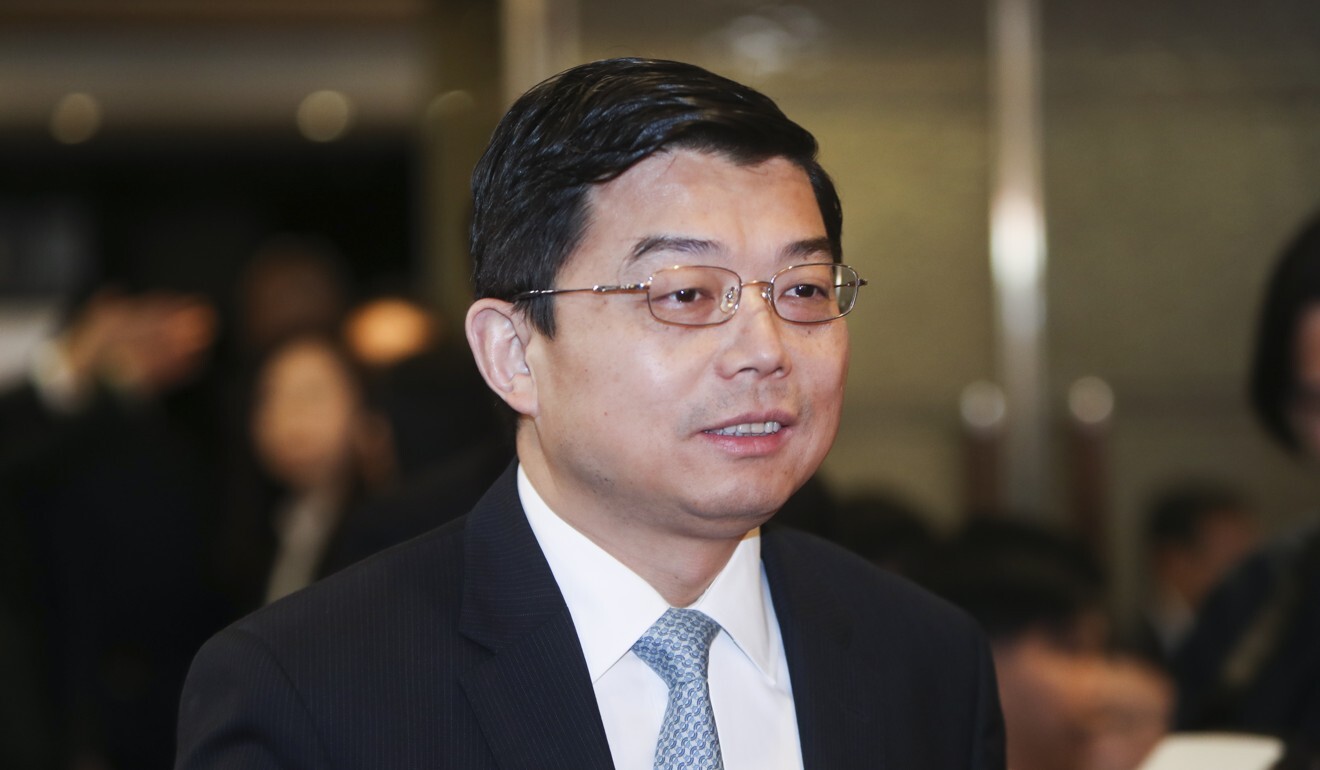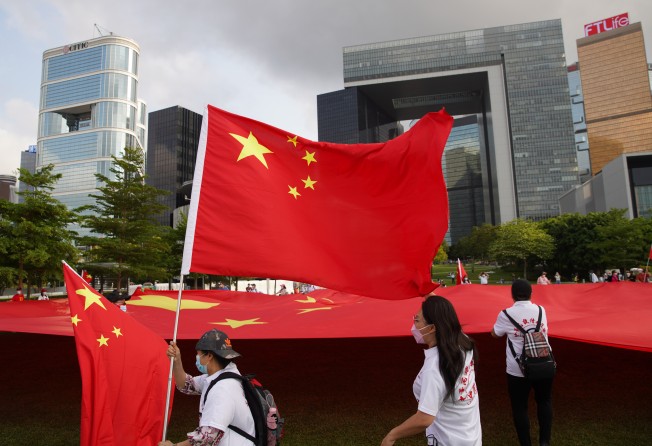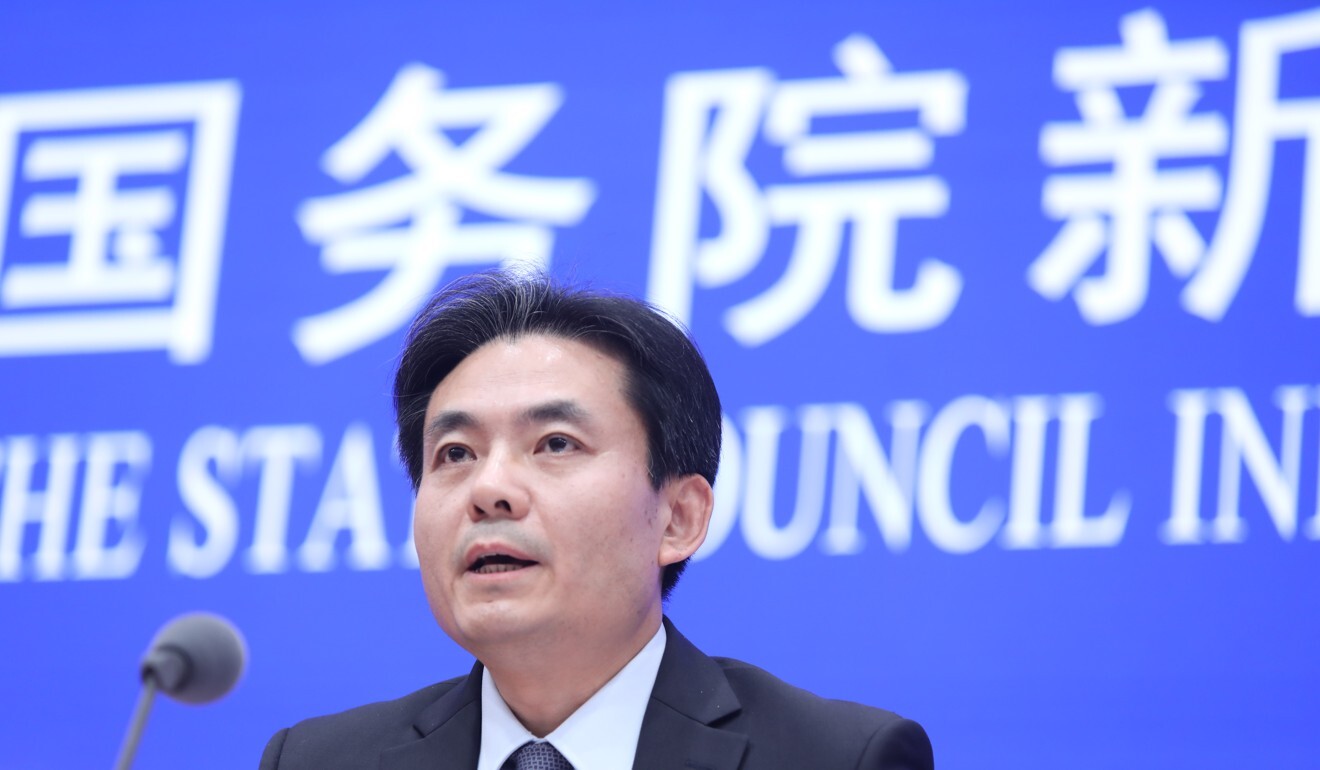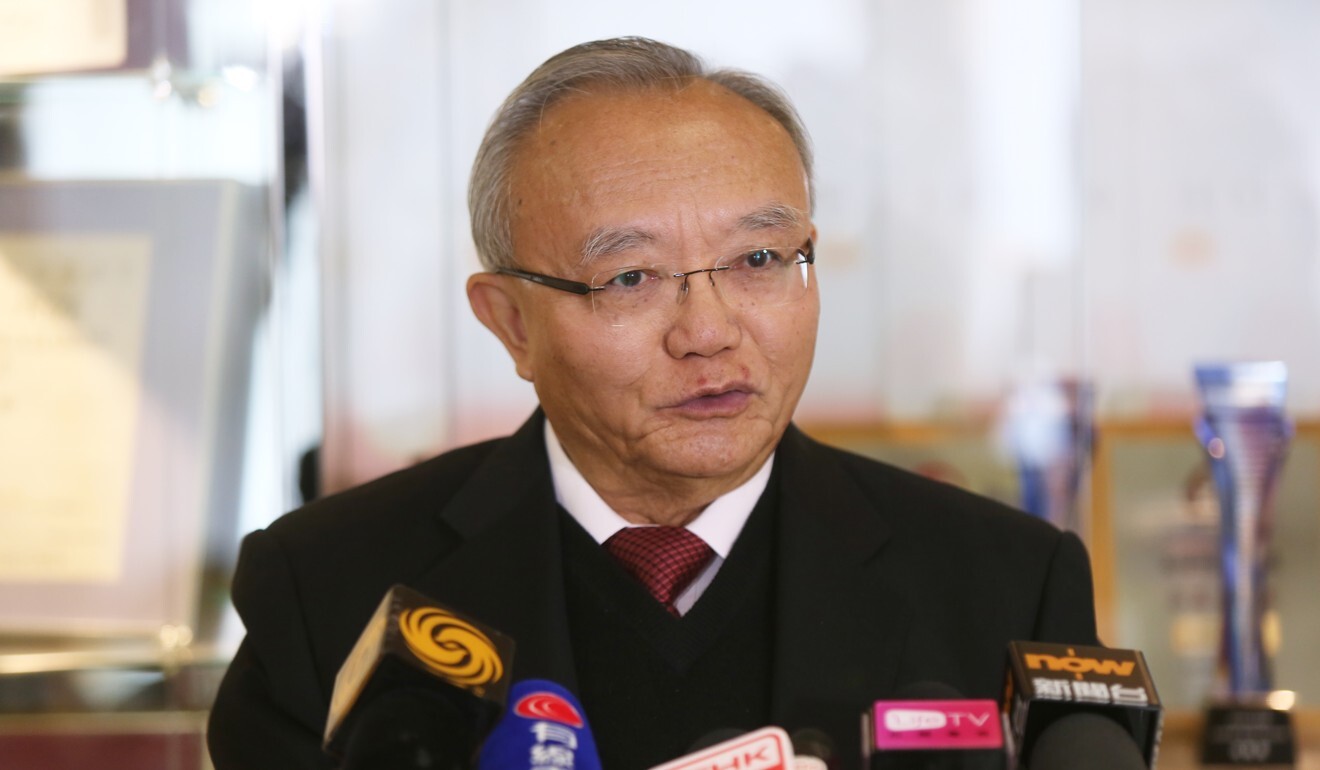
Beijing to expand Hong Kong office with two new departments focusing on national security and propaganda
- Hong Kong and Macau Affairs Office spokesman Yang Guang expected to head new department dealing with disseminating official information
- Former liaison office legal affairs director Wang Zhenmin tipped to run national security affairs department

Beijing’s top office overseeing Hong Kong affairs will be expanded to create two new departments covering national security and propaganda, a move some observers say signals the central government’s determination to win the “ideological battle” in the city.
According to multiple mainland Chinese sources, the new department responsible for national security affairs under the State Council’s Hong Kong and Macau Affairs Office (HKMAO) will be led by former liaison office legal affairs director Wang Zhenmin.
Yang Guang, one of the spokesmen for the HKMAO who previously hosted press conferences hitting out at Hong Kong’s anti-government protests in 2019, is expected to head the department tasked with managing media outlets and public opinion in the city.
“The creation of extra departments within the agency makes sense as it is facing a bigger workload after the implementation of the national security law,” a mainland source familiar with Hong Kong affairs said.
The sweeping legislation which Beijing imposed on Hong Kong last June outlaws acts of subversion, secession, terrorism and collusion with foreign forces.
A second source said the new propaganda department would take up part of the work from the office’s liaison department, and cater to the increasing needs to disseminate official information, strengthen the delivery of press conferences, approve and coordinate the Hong Kong and Macau journalists on the mainland, and “manage the media scene” in the two administrative regions.

The first source understood from official channels in Beijing that this was part of the revamp of the central government’s agencies handling Hong Kong affairs, while one more department could be created to coordinate the works of various departments of the HKMAO.
Currently, there are seven departments in the HKMAO, secretary and administration, general affairs, policy and research, liaison, exchange and cooperation, law, and institutional party committee (personnel).
A further mainland source said the changes corresponded to last year’s elevation of the “central coordination group” on Hong Kong and Macau Affairs – the highest de facto body for Beijing’s policy towards the two special administrative regions – to a “leading group”.
“As the leading group now includes security heavyweights like Guo Shengkun and Zhao Kezhi, the HKMAO will need a corresponding structure [to reflect the standing],” the source said, referring to the chief and public security minister of the Central Political and Legal Affairs Commission, China’s top security and law enforcement body.

Yang appeared as a spokesman in numerous press conferences held by the HKMAO at the height of the 2019 social unrest, giving strongly worded warnings to protesters against street violence. The press conferences were notable because they were the first the office had given since the handover in 1997.
“Yang Guang is of departmental director rank already, so it is not a promotion on the rank but an expansion of his job scope,” a source said.
Wang, 55, is currently the director of the centre for Hong Kong and Macau Research under Tsinghua University. He served as legal affairs director at Beijing’s liaison office in Hong Kong from 2015 to 2018.
In January, Wang published a 232-page book co-authored with two mainland scholars detailing the rationale and legislative process of the sweeping security law.
In an article published in the pro-establishment newspaper Sing Tao Daily in February last year, he said in accordance with the communique of the Communist Party’s fourth plenum held in October 2019, there was an urgent need to reform the central government’s governance regime regarding Hong Kong and Macau.
The communique called for actions to “establish a sound legal system and enforcement mechanism for safeguarding national security in the special administrative regions”.

Both veteran China-watcher Johnny Lau Yui-siu and pro-establishment academic Lau Siu-kai regarded the expansion as a systemic approach by Beijing to enhance ideological security.
“Beijing firmly regarded Hong Kong’s political turmoil as a result of foreign collusion with an aim to overturn the government, so that Beijing planned a series of organisational measures to step up ideological control,” Johnny Lau said.
Lau Siu-kai, vice-president of semi-official think tank the Chinese Association of Hong Kong and Macau Studies, said the new departments would be in an appropriate position to coordinate the “ideological battle” with anti-China forces.
“There is a lot to be done to weed out incorrect viewpoints about the central people’s government,” he said. “The new departments [in the HKMAO] will focus on monitoring public opinion and raising the awareness of Hongkongers’ obligation to abide by the law at a societal level.”
He expected the new departments would differentiate themselves from Beijing’s Office for Safeguarding National Security in the city, a state security agency which he said now mainly took up law enforcement tasks.
The national security law’s Article 9 stipulates that measures should be taken to strengthen public communication, guidance, supervision and regulation over matters concerning national security. Article 10 says Hong Kong shall promote national security education in schools and universities and through social organisations, the media, the internet and other means.